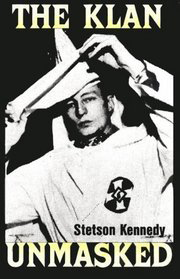

Stetson Kennedy's home will be open to visitors Sunday during a ceremony dedicating it a National Literary Landmark
Posted: November 16, 2014 - 12:17am
By Charlie Patton
charlie.patton@jacksonville.com
Admirers of Stetson Kennedy will have a chance to visit Beluthahatchee Park and see the small home where Kennedy lived for the last four decades of his life from noon to 4 p.m. today.
The occasion is the dedication of the cottage Kennedy built in 1972 as a National Literary Landmark by the American Library Association. It had previously been given designation as a National Literary Landmark because folk singer Woody Guthrie, a close friend of Kennedy’s, wrote about 80 songs and part of an autobiography while there. Now it also is dedicated as the place where Kennedy wrote several of his books.
Using a 2005 Florida Communities Trust grant, St. Johns County acquired Kennedy’s cottage and a house next door where Kennedy’s first wife Edith lived with her husband, Gerald Hart, Kennedy’s best friend. The Hart house serves as center for small meetings and private parties. The two buildings and five surrounding acres form Beluthahatchee Park.
During today’s event, Kennedy’s cottage will be open to the public. Visitors will see a virtual tour of the cottage and parts of the film “The Soul of the People” will be shown, as will footage from an upcoming documentary on Kennedy’s life. About eight groups will have informational booths set up. There will be a short dedication ceremony at 1 p.m.
FINDING HIS PLACE
During his long and remarkable life, Kennedy, who died at 94 on Aug. 27, 2011, made his mark as a folklorist, as a champion of racial equality and as an enemy of hate groups such as the Ku Klux Klan. His first book, “Palmetto Country,” an acclaimed work on Florida folklore published in 1942, drew on his years as head of the Florida Folklore Project. His job was to compile folklore for a WPA guide to Florida. Zora Neale Hurston worked on the project and Kennedy got the name he gave his home and the lake it overlooked from a folk tale Hurston recorded, referring to Beluthahatchee as a mythical place “where all discord was forgiven.”
After being turned down for service during World War II, he turned his attention to the prevailing Jim Crow racial segregation in the South, researching and writing “Southern Exposure,” a 1946 book about Southern hate groups. Living in Atlanta and working as a journalist, he began investigating the Klan and other hate groups with the help of another man. He wrote an account of that experience for which he could not find a publisher. Moving to Europe, he rewrote the book to make it more appealing to a general audience.
A PASSION FOR EQUALITY
That led to later controversy after “The Klan Unmasked,” which was first published in France in 1954, was republished in 1990 by the Florida Atlantic University Press. It eventually came to light that the book was not a straightforward work of nonfiction but rather a fact-based novel that had a lead character, Stetson Kennedy, doing and seeing things that in some cases had actually been done and seen by other people. Subsequently, Kennedy admitted that he intermingled events witnessed by several people into a single narrative to make his story more compelling. He said he regretted that he didn’t write an introduction for the 1990 edition that would have made his method clearer.
After spending part of the 1950s in Europe, where he wrote and published “Jim Crow Guide U.S.A.,” Kennedy moved back to Jacksonville, became involved in the civil rights movement and went to work with a local anti-poverty agency. Although he continued researching and writing, he did not publish books again until he co-authored “South Florida Folklife,” published in 1994. Then “After Appomattox: How the South Won the War,” was published in 1995, “Grits and Grunts: Folkloric Key West,” came out in 2008 and “The Florida Slave” was published posthumously in 2011.
Because Beluthahatchee Park is designated as a passive park — it is the middle of a residential neighborhood — it will not be open on a regular basis, said Kennedy’s widow, Sandra Parks. But both the Stetson Kennedy Foundation and the North Florida Folk Network will hold occasional events during which the park will be open, she said. Information about upcoming events should be available at Sunday, she said.
Beluthahatchee Park is at 1501 State Road 13 in northern St. Johns County.
No comments:
Post a Comment